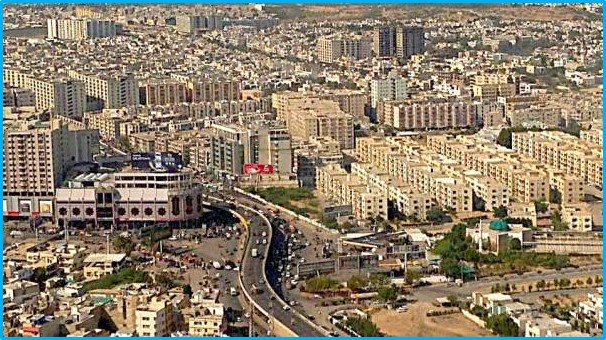The new census report on urbanization in Pakistan invite policymakers, urban planners and even real estate developers to review their vision about cities’ sprawling and reconsider a sustainable way of development. This is necessary for better urban management pertaining specially to proper housing, environment and health of inhabitants.
According to Pakistan Bureau of Statistics, the country ranks among the world’s most rapidly urbanizing countries. Last census figures show that some 76 million people or 36.5% live in cities in 2017 compared to 43 million who lived in urban areas back in 1998. However, independent studies argue that nearly half the country’ population could be classified as urban if the definitions of a city or urban area are interpreted liberally.
A few years ago, a World Bank study described Pakistan’s urbanization as “messy and hidden” resulting in breakdown of city infrastructure and unable to deliver public services like education, health, clean drinking water, sewerage and etc. Today rapid urbanization is placing more pressure on limited public services, which are unavailable for city dwellers as socio-economic infrastructure in major cities crumbles owing to poor planning, greed and politics. .
New Vision for Housing
Urbanization in Pakistan is mainly driven by high birth rate and the migration of rural labour in search of better jobs and facilities. However, it brings enormous pressure on limited public services and resulting in massive growth of slums, classification of residential areas on the basis of socioeconomic status, increase in poverty levels, ugly housing sprawls besides deteriorating environment, air quality and public health apart from lack of transport and increase in crimes.
Interestingly, the census results also reveals the dwindling household sizes in urban areas has reduced to 5.55 persons in Sindh and 6.38 persons in Punjab against the national average of 6.39 persons. Although, major cities lack affordable housing, but that reduced figure of household sizes extends an ease to real estate developers and invite them to embark upon low-cost apartments in the outskirts of cities, which can arrest horizontal expansion and deterioration of agricultural land in the country.
Senseless Priorities of Government
On the other hand the policies of the federal and as well as provincial government lack imagination. On the name of Naya Pakistan Housing Program for poor and extending taxation reliefs including wealth amnesty for builders via Construction Package 2020, the federal government’ focus is largely on upscale real estate projects like Island Cities, Ravi River Urban Project, Lahore Business District and other. With the exception of inaugurating a few hundred low cost apartments, the federal government couldn’t deliver anything in terms of housing for poor.
Similarly, instead of developing public transport in cities the government facilitate the mobility of private and luxury car owners, which makes no sense keeping in view of better urban management.
Most importantly an effective local government system is the mother of all solutions for cities. Very unfortunately both federal and provincial governments dislike to allow local bodies to act just because of political reasons.
By
Editorial, Infocus


